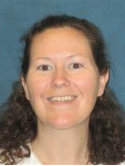Exploring the cancer caregiver's journey through web-based Meaning-Centered Psychotherapy Journal Article
| Authors: | Applebaum, A. J.; Buda, K. L.; Schofield, E.; Farberov, M.; Teitelbaum, N. D.; Evans, K.; Cowens-Alvarado, R.; Cannady, R. S. |
| Article Title: | Exploring the cancer caregiver's journey through web-based Meaning-Centered Psychotherapy |
| Abstract: | Objective: Psychosocial interventions are historically underutilized by cancer caregivers, but support programs delivered flexibly over the Internet address multiple barriers to care. We adapted Meaning-Centered Psychotherapy for cancer caregivers, an in-person psychotherapeutic intervention intended to augment caregivers' sense of meaning and purpose and ameliorate burden, for delivery in a self-administered web-based program, the Care for the Cancer Caregiver (CCC) Workshop. The present study evaluated the feasibility, acceptability, and preliminary effects of this program. Methods: Eighty-four caregivers were randomized to the CCC Workshop or waitlist control arm. Quantitative assessments of meaning, burden, anxiety, depression, benefit finding, and spiritual well-being were conducted preintervention (T1), within 2-weeks postintervention (T2), and 2- to 3-month follow-up (T3). In-depth semistructured interviews were conducted with a subset of participants. Results: Forty-two caregivers were randomized to the CCC Workshop. Attrition was moderate at T2 and T3, with caregiver burden and bereavement as key causes of drop-out. At T2 and T3, some observed mean change scores and effect sizes were consistent with hypothesized trends (eg, meaning in caregiving, benefit finding, and depressive symptomatology), though no pre-post significant differences emerged between groups. However, a longitudinal mixed-effects model found significant differential increases in benefit finding in favor of the CCC arm. Conclusions: The CCC Workshop was feasible and acceptable. Based on effect sizes reported here, a larger study will likely establish the efficacy of the CCC Workshop, which has the potential to address unmet needs of caregivers who underutilize in-person supportive care services. Copyright © 2017 John Wiley & Sons, Ltd. |
| Keywords: | adult; controlled study; drug efficacy; follow up; randomized controlled trial; cancer model; feasibility study; psycho-oncology; bereavement; anxiety; symptomatology; psychotherapy; wellbeing; semi structured interview; caregiver burden; supportive care; effect size; cancer caregivers; human; male; female; article; psychosocial oncology; meaning-centered psychotherapy |
| Journal Title: | Psycho-Oncology |
| Volume: | 27 |
| Issue: | 3 |
| ISSN: | 1057-9249 |
| Publisher: | John Wiley & Sons |
| Date Published: | 2018-03-01 |
| Start Page: | 847 |
| End Page: | 856 |
| Language: | English |
| DOI: | 10.1002/pon.4583 |
| PROVIDER: | scopus |
| PUBMED: | 29136682 |
| PMCID: | PMC8045418 |
| DOI/URL: | |
| Notes: | Erratum issued, see DOI: 10.1002/pon.5515 -- Article -- Export Date: 2 April 2018 -- Source: Scopus |
Altmetric
Citation Impact
BMJ Impact Analytics
Related MSK Work






